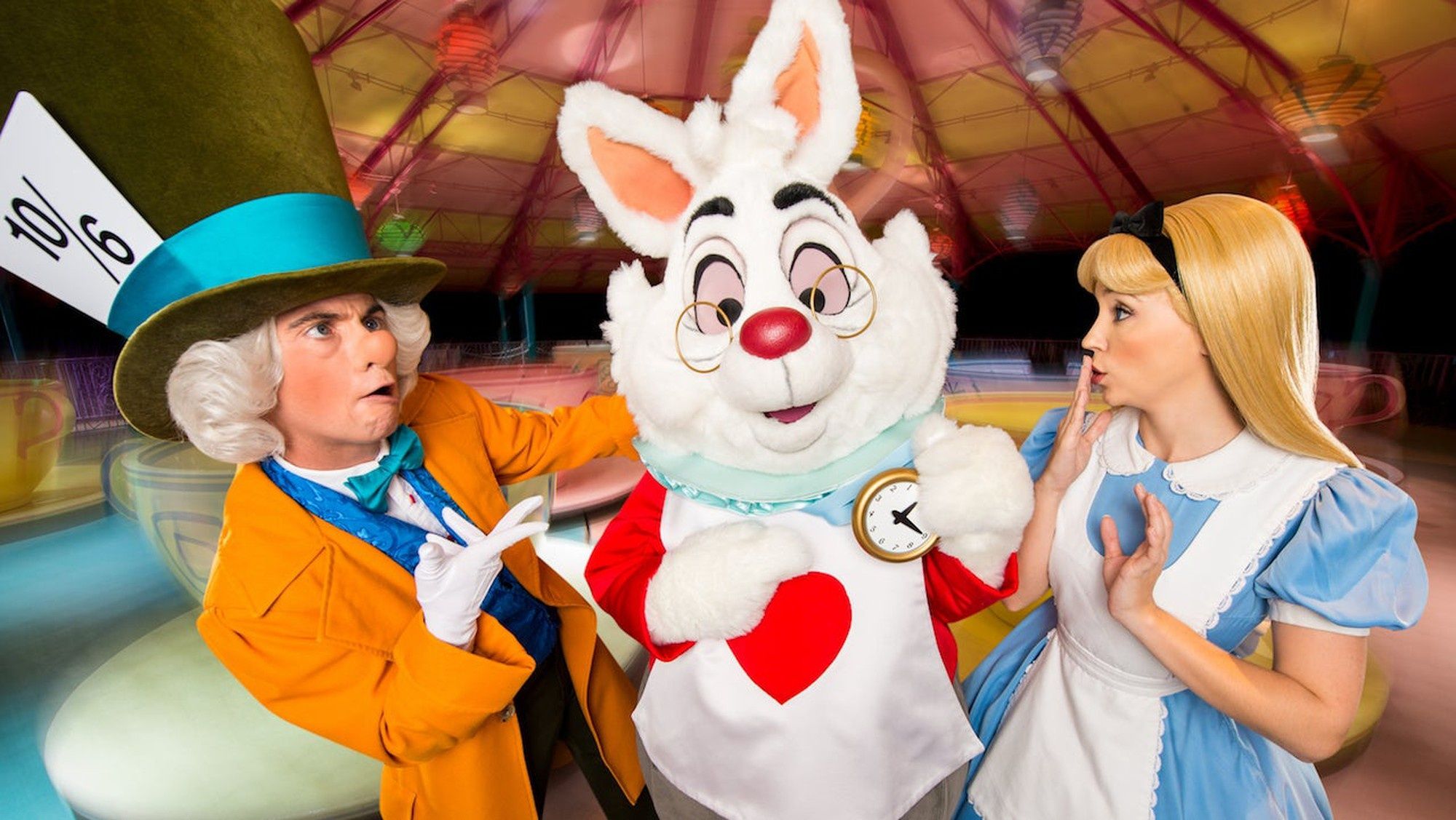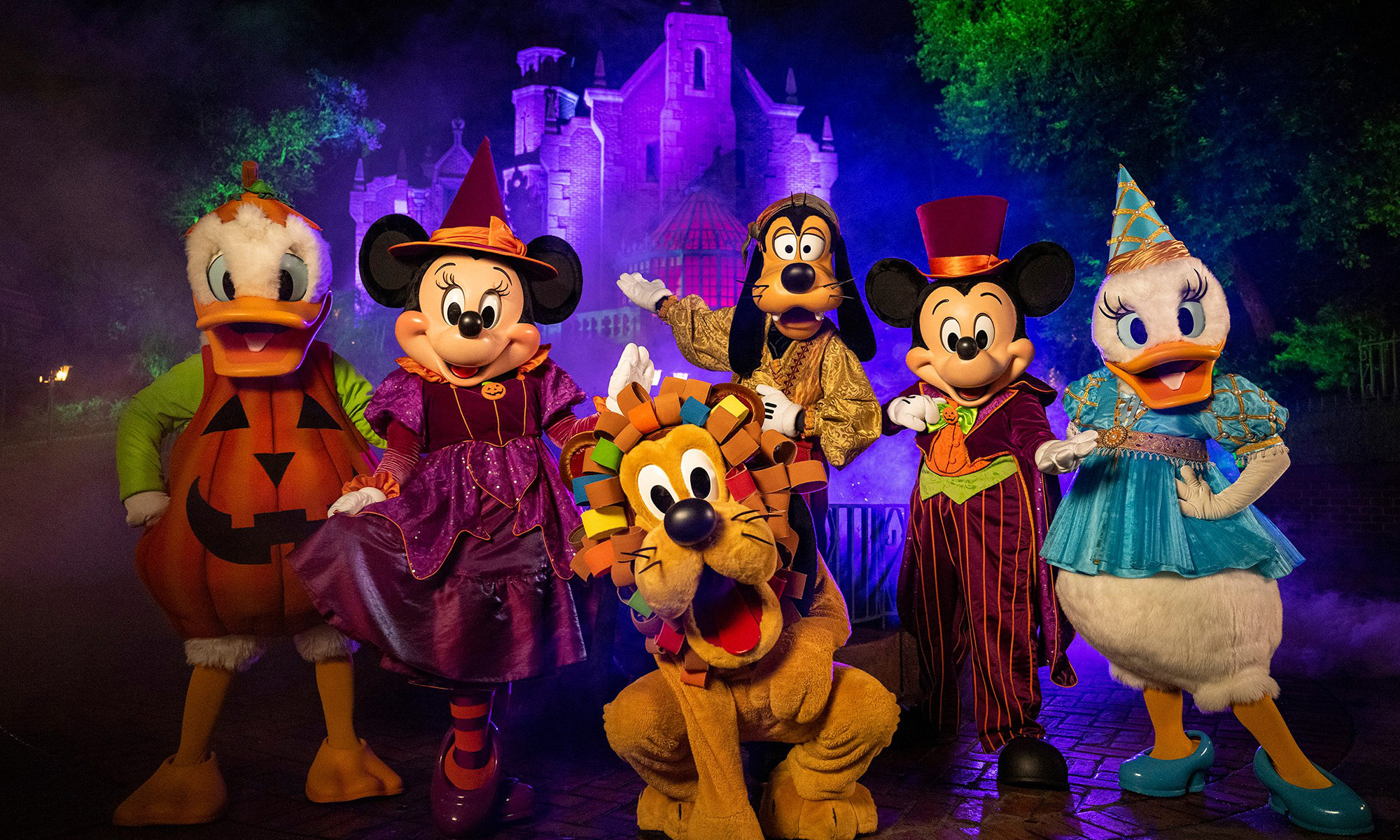Investors using the stock-trading app for the financial services company Robinhood seem to be feeling the magic. More than 622,000 of them own shares of Disney (DIS +0.43%), according to Robinhood data, making it the fourth-most-popular holding in the portfolios of its users.
After the coronavirus pandemic forced Disney to temporarily shut down its theme parks -- which make up a big piece of the company's top revenue-generating segment -- its share price fell in late March by as much as 41%. In the months since then, the stock has somewhat recovered but is still struggling to gain back all it lost before the mid-February drop. Now though, it appears that Robinhood investors -- often younger people seeking out stocks with the potential for near-term gains -- are piling into shares of the entertainment giant.
Let's take a closer look at why so many of these Robinhood traders may think now is the moment to hop on the Disney train.

Image source: Disney.
A partial share price recovery
Robinhood investors may see the recent park reopenings and share price gains as signs that Disney stock is on its way back to the record high it reached in October 2019. After a four-month closure, the company has reopened its Florida parks. Walt Disney World's Magic Kingdom -- the world's most-visited theme park -- and its Animal Kingdom park opened on July 11. EPCOT and Disney's Hollywood Studios welcomed back guests a few days later. This is significant because Disney's parks, experiences, and products segment produced 38% of the company's annual revenue last year.
At the same time, Disney shares have been rebounding. They're up by 39% from the low point they sank to in late March, a climb that has pared their year-to-date losses to 17%.
But are those park reopenings really an upbeat indicator for earnings? Not right away.
Disney said it will admit fewer visitors to its theme parks in order to comply with social-distancing requirements. The company didn't offer any opening day details, but Len Testa, a co-author of an unofficial Disney guidebook, told USA Today that as of 1 p.m. on opening day, there were about 10,000 guests in the Magic Kingdom. He said the park usually averages about 60,000 visitors a day.
The possibility of lower demand also may limit attendance numbers. Some fans may postpone their trips until the parks return to normal operations. Others may stay away due to the rapidly deteriorating coronavirus situation in Florida. The state has reported more than 77,000 new COVID-19 diagnoses over the past seven days, according to data from the Centers for Disease Control and Prevention. That's the most of any state in the country.
And as the national health crisis continues to worsen, there is always the possibility the theme parks may be forced to close again. That's what happened to Hong Kong Disneyland this week. After 100 total new COVID-19 cases were reported on Monday and Tuesday in the city of 7.5 million, Hong Kong's government reimposed restrictions that shut the park "until further notice," hardly a month after it reopened. The Disneyland parks in California remain closed as that state grapples with its own surging outbreaks.
Parades, fireworks, and Mickey's party
Back in Florida, Disney detailed other measures to be taken in parks such as temperature screenings and a requirement for all guests over the age of 2 to wear face masks. Disney also ramped up its cleaning measures, put parades and fireworks on hold, and even canceled Mickey's Not-So-Scary Halloween Party. Lower attendance at the parks means less revenue, while many of the safety measures will result in higher operations costs.
The idea of Disney's parks getting back to business is positive. But the reopenings aren't likely to equal much revenue growth until the coronavirus pandemic is brought under control. Given that, investors should expect to wait a few quarters until the parks, experiences, and products segment can come close to delivering the levels of revenue it did in the past. As a point of reference, the segment posted an 8% gain in revenue to $7.4 billion in the fiscal quarter that ended Dec. 28. In the quarter ending March 28, the segment's revenue slid 10% to $5.5 billion. The next earnings report, set for Aug. 4, will include the months of park closures. And the report after that will include the tumultuous reopening period.
So, while the stock may gain in the short term on Robinhood traders' optimism, investors in this consumer discretionary stock should be vigilant when earnings season rolls around. Real recovery -- both for Disney's revenues and its shares -- won't happen overnight.






